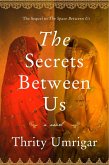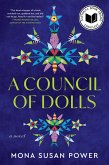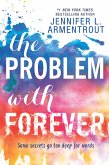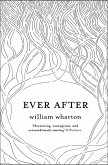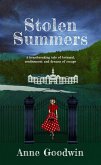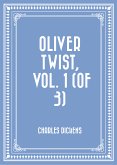Trapped in trauma, alone abroad, and loathing the covid lockdown.
Japanese Kigaiko Wazawai knows: if she cannot feel whole, it won't be the Corona virus that will kill her.
Guided by philosophical discussions with her grandfather, and metaphorical dreams, Kigai ventures into a journey of self-discovery and online dating, and the Korean-American Jacob Isdadi she gets to know soon becomes a close companion.
However, their path is full of obstacles: her unprocessed trauma pulls her back; the pandemic blocks them from meeting; and if the present wasn't enough, the historically tense Japanese-Korean relation forms additional stumbling blocks.
Kigai fights through a labyrinth of different approaches to escape her inner prison until there seems no way past a compromise: not reaching her destination, or losing the man she loves. Will she find her freedom?
Find out and inspire your self-help journey through the mind-swirling depth of this melancholic, yet hopeful psychological literary fiction best-seller with a heartbreaking twist.
________________________________________
Bonus Material:
- Are you in a book club? "Prison of Loneliness" includes a discussion guide which covers character development, mental health, the Japanese-Korean relation and more. Check it out.
- Every subscriber receives free bonus material: The Deciphering Game, The Prison Dreams Uncut, The Interpretation Help. More details in the book.
For which audience is it written?
Depending on the interests, the book can appeal to people:
- Fighting with or wanting to understand mental health (loneliness, trauma, PTSD, depression, rape, grief)
- Living abroad or intrigued by Asian culture (Japanese, Korean-American)
- Wanting to learn about relationship theory through a story rather than a textbook (toxic relationships, love languages, attachment styles, online dating)
Which genre do you attribute this book to?
With psychological self-development as the backbone of the story, this is literary fiction.
The tragic love story brings an additional layer of modern romance and women's fiction.
Real-life events inspired many descriptions and actions, so it could even be called auto-fiction.
Cultural differences between one's home country and country of residence, as well as in the interactions with other people, justify the classification as world literature.
Japanese Kigaiko Wazawai knows: if she cannot feel whole, it won't be the Corona virus that will kill her.
Guided by philosophical discussions with her grandfather, and metaphorical dreams, Kigai ventures into a journey of self-discovery and online dating, and the Korean-American Jacob Isdadi she gets to know soon becomes a close companion.
However, their path is full of obstacles: her unprocessed trauma pulls her back; the pandemic blocks them from meeting; and if the present wasn't enough, the historically tense Japanese-Korean relation forms additional stumbling blocks.
Kigai fights through a labyrinth of different approaches to escape her inner prison until there seems no way past a compromise: not reaching her destination, or losing the man she loves. Will she find her freedom?
Find out and inspire your self-help journey through the mind-swirling depth of this melancholic, yet hopeful psychological literary fiction best-seller with a heartbreaking twist.
________________________________________
Bonus Material:
- Are you in a book club? "Prison of Loneliness" includes a discussion guide which covers character development, mental health, the Japanese-Korean relation and more. Check it out.
- Every subscriber receives free bonus material: The Deciphering Game, The Prison Dreams Uncut, The Interpretation Help. More details in the book.
For which audience is it written?
Depending on the interests, the book can appeal to people:
- Fighting with or wanting to understand mental health (loneliness, trauma, PTSD, depression, rape, grief)
- Living abroad or intrigued by Asian culture (Japanese, Korean-American)
- Wanting to learn about relationship theory through a story rather than a textbook (toxic relationships, love languages, attachment styles, online dating)
Which genre do you attribute this book to?
With psychological self-development as the backbone of the story, this is literary fiction.
The tragic love story brings an additional layer of modern romance and women's fiction.
Real-life events inspired many descriptions and actions, so it could even be called auto-fiction.
Cultural differences between one's home country and country of residence, as well as in the interactions with other people, justify the classification as world literature.
Dieser Download kann aus rechtlichen Gründen nur mit Rechnungsadresse in A, B, CY, CZ, D, DK, EW, E, FIN, F, GR, H, IRL, I, LT, L, LR, M, NL, PL, P, R, S, SLO, SK ausgeliefert werden.



